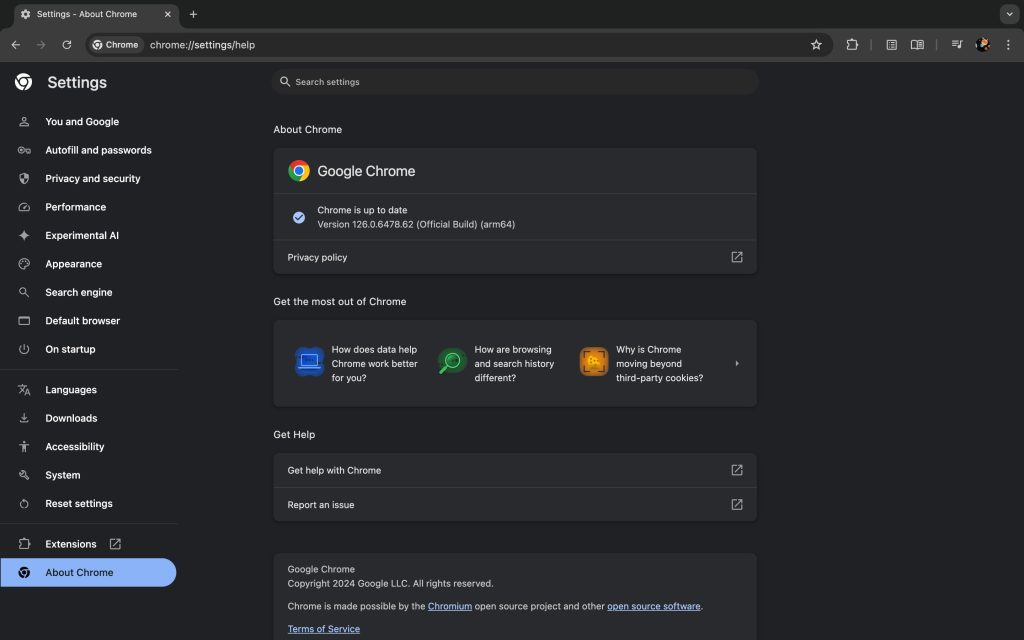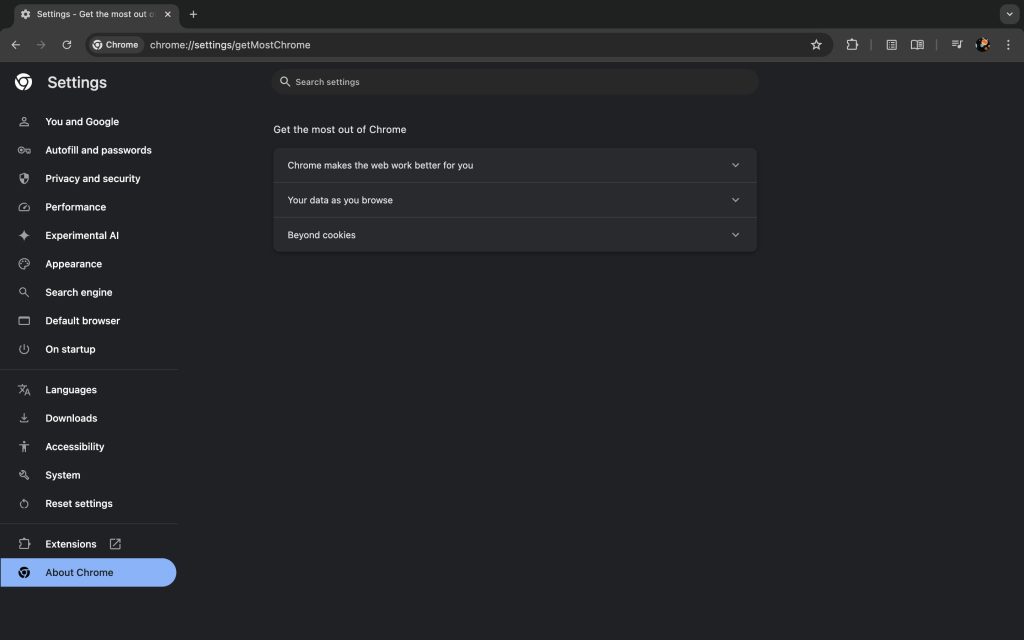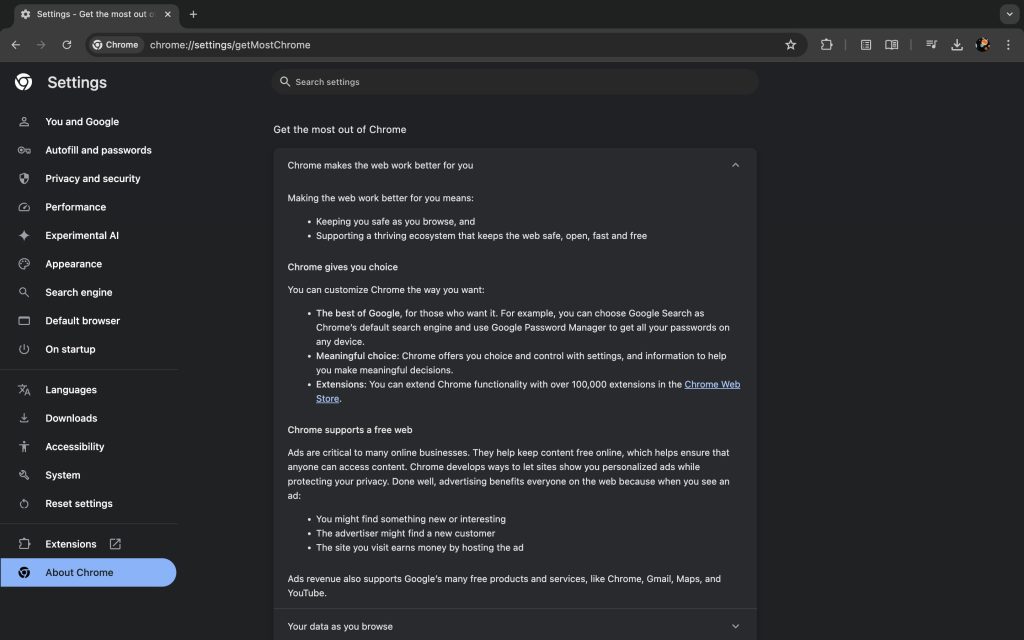
Besides adding a “Listen to this page” TTS feature in the Android browser, Chrome is rolling out an interesting update to its About page on desktop that explains Google’s stance on ads and a free web.
“About Chrome” is the last item in Settings and lets you manually update the desktop browser. Google has now added a new “Get the most out of Chrome” section that shows three explainer-esque articles. We’re seeing it on Chrome 126, but it’s not appearing on every device we checked today.
In “Chrome makes the web work better for you,” Google says its browser “gives you choice” and points to three customization options: first-party integrations (like Google Search and Password Manager), various settings, and over 100,000 Chrome Web Store extensions.
The most notable aspect of this entire page is the “Chrome supports a free web” subsection:
“Ads are critical to many online businesses. They help keep content free online, which helps ensure that anyone can access content. Chrome develops ways to let sites show you personalized ads while protecting your privacy. Done well, advertising benefits everyone on the web because when you see an ad:
- You might find something new or interesting
- The advertiser might find a new customer
- The site you visit earns money by hosting the ad
Ads revenue also supports Google’s many free products and services, like Chrome, Gmail, Maps, and YouTube.”
Google has made these arguments about ads and the free web in the past, but stating it explicitly in Chrome’s About page is an interesting move, even if most people might not venture this deep down into preferences.
Another section talks about how data “can help Chrome improve” to presumably counter perceptions people have about the browser:
- Help you browse faster. For example, your past Google searches can help Chrome prompt you with predictions for your future ones.
- Allow sites to optimize your experience for your device. For example, a site can streamline its content for your mobile phone and remember your preferences, like your preferred language.
- Help advertisers, including Google, show more relevant ads.
The final article talks about the Privacy Sandbox initiative. It starts by explaining the concept of cookies:
Cookies allow for this same level of preference customization on the web. When you visit a site, the site can save a cookie in your device’s browser storage to remember your site preferences, such as the language you speak or items that you want saved in a shopping cart. Later, if you visit the site again using the same browser, that site can read the cookie it set and you can start up where you left off. These types of cookies are often referred to as first-party cookies, because they’re set by the site you visit.
Google distinguishes first-party cookies from third-party ones, and explains how it is working to replace the latter with more privacy-conscious alternatives, though it has now been delayed three times. The goal is to “reduce cross-site tracking and phase out the use of third-party cookies,” while ensuring ads remain in the equation:
That matters because sites often count on ads to help pay expenses and keep their online content free of charge.
FTC: We use income earning auto affiliate links. More.






Comments